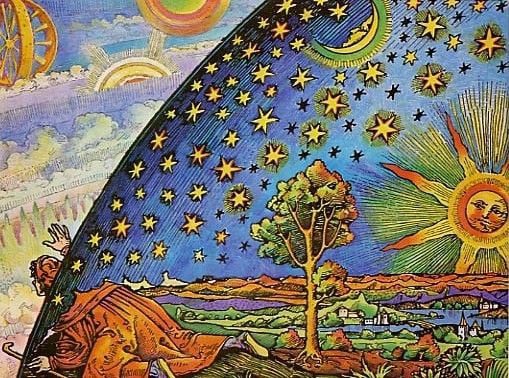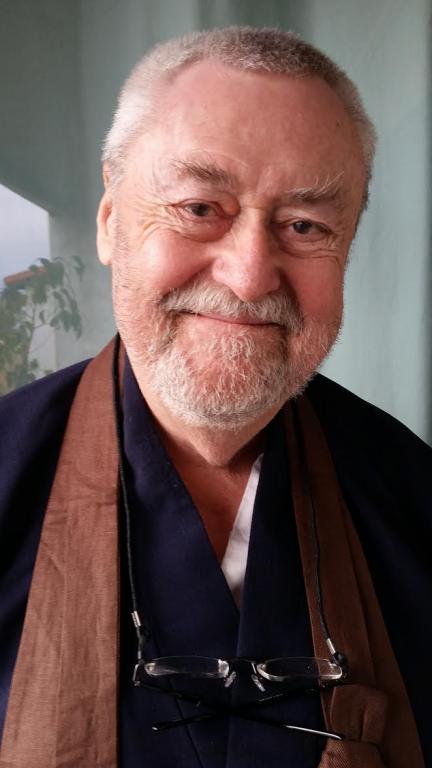I am so pleased that one of my favorite publishers, Shambhala Publications, is bringing out my next book. It’s due in July. Feel free to pre-order it.
While n the middle of the edits on this project, I was notified my first book had gone out of print. It was an introduction to Zen, originally aimed at Unitarian Universalists. There was a second edition that was meant to be a more general introduction. I re-read it. And thought it wasn’t a bad little intro. And my second thought was it’s not the book I’d write today.
I rather quickly put together my thoughts for an introduction today and offered it to the acquisitions editor at Shambhala. He informed me that they would be interested, but as I had a book in process with them, they couldn’t look at anything else from me until they had six months of sales to look at, as well. My earlier books have all been with nonprofits, so not something I’m used to. But to be fair, I am enjoying working with a publisher that actually has people concerned with sales.
But I was also itchy. As it happens I was impressed with the production quality of a recent book by two Zen colleagues whom I deeply admire, the Book of Householder Koans. So, I offered my manuscript Monkfish. They said they were interested, particularly in some things I alluded to but did not develop in the manuscript. Adding that in, could I rewrite it to the title Zen at the End of Religion?
I said, sure.
This has led me into a thicket. Mostly a good thing, I think. But, very challenging. I’m seventy-five and with these two books, and maybe a third are all inviting me into a pause and reflection on what I’ve gleaned in my life. The Intimate Way, the book with Shambhala is my reflection on the arc of a spiritual life, and how it manifests in this time and this place. So, it’s Zen. But its more than a little informed by other aspects of my spiritual life, my reading, my natal Christian tradition, my explorations of other religions. I hope it proves useful.
But then being asked about Zen within the challenges to religion has been, well, interesting.
I had to clarify what I think religion is. Especially beyond the crowd control aspect many of us have noticed and don’t particularly like. Along this way I had to clarify what I really, really believe is true.
I realized it can boil down a bit. I claim a sort of naturalistic perennialism. That is I fall at least broadly in with those who feel they seem something common within religions. I think of it as kind of the spiritual that might be found among the spiritual but not religious. But it’s pretty vague. I come to believe there’s something in the way our human brains work that allows us to see two things at the same time. One is our uniqueness as individuals. The me thing. The other is that we are bound up together and that the boundaries between me and the other are more permeable than we usually think and maybe wish.
On the one hand I think this dual insight is the mother of all our variations on the golden rule. On the other hand it leads us into what is now more or less commonly called nonduality. The intimations of nonduality manifest differently among the many religions. Some more successfully than others.
While I believe I have profited from reflections on several of these traditions, I’ve been most fortunate in finding Zen, and more precisely Zen Buddhism. For me it’s about the clearest of the world’s traditions when looking at what nonduality is and how we can engage it. Not perfect. But astonishingly good.
As I look at the Buddhist world and the accidents of history that birthed Zen I find a very small handful of critical things.
There’s a great deal of conversation about karma and rebirth and what one must “believe” in order to call oneself a Buddhist. Well, I totally believe in karma as causality. I understand how we and our minds form in a play of causes and conditions. But that specific sense some who are deeply concerned with a correct definition of Buddhist and of our intentions shaping future lives? Only with a lot of hedges and mental reservations. One life per customer. Lots of lives in that one life. But biologically? One life.
However, and that said, I am absolutely convinced, as foundational to everything else I engage in the Four Seals. I think of it as Buddhist a Buddhist confession one might have.
I am past wary of dogmas. And yet I find these the most helpful pointers to the structures of the human heart of any I’ve encountered in my life. While all things need to be held lightly, and our claims to objective reality subject to mutation and change, these have been the pointers that have so far proven as true as anything I’ve encountered in this saha world, in this passing world.
This is why I call myself a Buddhist, and why of the many authentic ways, I bow into the specific tradition that is Zen. If there are any authentic first principles to a spiritual life, certainly the Zen Buddhist spiritual life, they are these.
The four seals are observations about the nature of things, and specifically our human condition. The formulation of the four seals don’t seem to date much earlier than the “The Questions of the Nāga King Sāgara,” the Sāgaranāgarājaparipṛcchā, which itself doesn’t seem to date earlier than the third century before our common era, and is likely much later. Of course, it is simply an explicit ordering of what had been taught for hundreds of years as the heart of the Buddha’s teaching.
The first three are:
1) Impermanence: Everything is made of parts, and they will inevitably come apart. This speaks to the fundamental structures of the universe as well as to the creation of our minds. But it is the mind, it is the heart that it’s most critical for us to understand. We are real. But we are impermanent.
2) No-self or the Emptiness of Self: There is no abiding self. The self is real. As I said, we are real, you and I. Pinch us and we hurt. But our exist4ence is mutable. And in the end, we are mortal. Nothing escapes the dissolution of the body. The wonderful mystery that we are, our unique noticing of the universe, our little corner ends.
3) Dis-ease or Disquiet: The motion of things rising and falling is experienced by humans as painful, causing anxiety and anguish. I call this encounter the buzz. The buzz is in the back of everything we encounter, behind every victory.
These first three are found in some lists as the “marks of existence.”
There are further elaborations within the schools of Buddhism. But most famously the Abhidharma, which is perhaps the first attempt at a comprehensive theory of mind. I find it fascinating and worthy. And it is not persuasive. There are vastly too many assumptions that do not seem to me to track with what we can observe.
Me, while the basic observation rings true, more than true, that’s also where it stops. I would rather rely upon neuroscience for a deeper understanding of how these things come together.
And, one more thing. And that is how we engage the fourth seal.
4) There is a way through the hurt. This is the good news of Zen Buddhism. While the buzz belongs to the universe, it’s the experience of everything in motion, the buzz as discomfort, dis-ease, anxiety, or anguish belongs specifically to our human world. Given the size of the cosmos, “human” here would be any being with a consciousness that can discern the first three seals.
There is a way through. Call it enlightenment. Call it awakening. Call it peace.
Buddhism, Zen, is about awakening. The fourth seal of the intimate way.
And here I find it is the form of Buddhism that emerges in China (by way of Nagarjuna, as well.) that is most helpful.
Here the specific disciplines of Zen open the way for me. The fundamental practices of Zen meditation and koan introspection open the path of intimacy better than any others I’ve encountered. At least for me. And I believe, it is true for many others among us, as well.
Of secondary importance, but very important are the possibilities of spiritual directors who know what they’re about, and paths of formation, some antique, and others birthing into our time and place.
And there is a shifting in the Chinese Buddhism, this emergent Zen. What is awakening takes on a different cast from earlier forms of Buddhism. All of which are predicated on the stopping of an endless cycle of suffering. This involves a gradual letting go of every form of clinging. In Zen a somewhat different angle is offered. Awakening is found when we let go of our sense of isolation and separateness. Zen teaches that we’ve been awake sense the creation of the universe. Letting go is letting go of a delusion.
Zen takes the four seals and makes them operational.
This is something of a spare Zen. It’s the nub of Zen as I understand it. There is also an invitation into a certain humility. No one gets it completely right. This is a human project. And, well, we’re human.
So, I think the wisest thing is to be open to other angles on the mystery. Being aware of how other traditions engage the mysteries of nonduality. Literature. Poetry. Especially the teachings that get enshrined as various cultures’ myths. If we engage them from the perspective everything is connected, lessons are offered.
It’s about how we meet the world.
And I cannot express my gratitude enough for finding this path. Actually, it feels something deeper than finding. As the Zen teacher Zenju Earthlyn Manuel says “It is all very natural to me. I welcome the Dharma as it has welcomed me long before I was born.”
It is organic. It is physical. It is intimate.
A way for our times.















